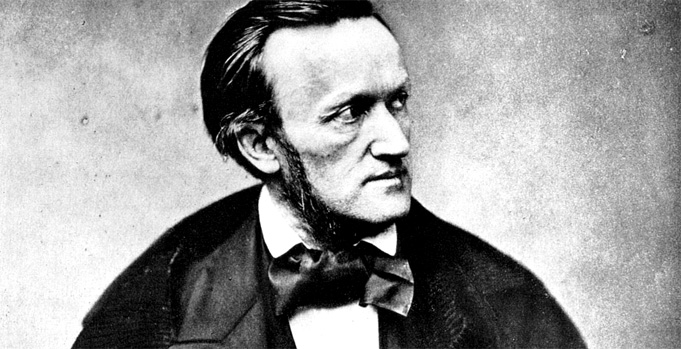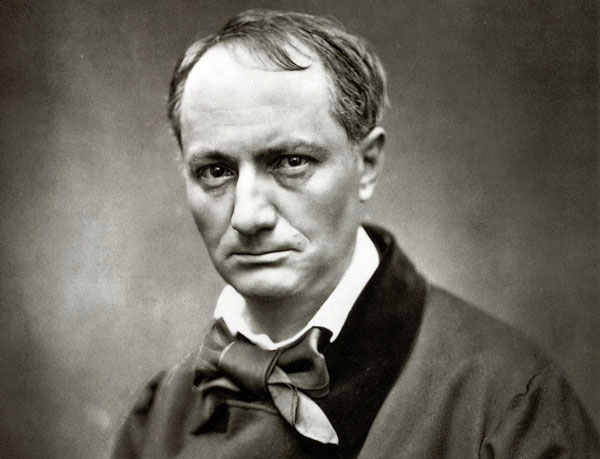Richard Wagner: ‘Once again, sir, I thank you,’ wrote Baudelaire. ‘You brought me back to myself and to what is great, in some unhappy moments.’A Letter to Richard Wagner
‘You are not the first man, sir, about whom I have suffered and blushed for my country.’
From Charles Baudelaire Paris, February 17, 1860
Dear Sir:
I have always imagined that however used to fame a great artist may be, he cannot be insensible to a sincere compliment, especially when that compliment is like a cry of gratitude; and finally that this cry could acquire a singular kind of value when it came from a Frenchman, which is to say from a man little disposed to be enthusiastic, and born, moreover, in a country where people hardly understand painting and poetry any better than they do music. First of all, I want to tell you that I owe you the greatest musical pleasure I have ever experienced. I have reached an age when one no longer makes it a pastime to write letters to celebrities (1), and I should have hesitated a long time before writing to express my admiration for you, if Id did not daily come across shameless and ridiculous articles in which every effort is made to libel your genius. You are not the first man, sir, about whom I have suffered and blushed for my country. At length indignation impelled me to give you an earnest of my gratitude; I said to myself, “I want to stand out from all those imbeciles.”
Charles Baudelaire: ‘…the music at the same time would now and then resound with the pride of life’The first time I went to the Italian Theatre in order to hear your works (2), I was rather unfavorably disposed and indeed, I must admit, full of nasty prejudices, but I have an excuse: I have been so often duped; I have heard so much music by pretentious charlatans. But you conquered me at once. What I felt is beyond description, and if you will be kind enough not to laugh, I shall try to interpret it for you. At the outset it seemed to me that I knew this new music, and later, on thinking it over, I understood whence came this mirage; it seemed to me that this music was mine, and I recognized it in the way that any man recognizes the things he is destined to love. To anybody but an intelligent man, this statement would be immensely ridiculous, especially when it comes from one who, like me, does not know music, and whose whole education consists in having heard (most pleasurably, to be sure) some few fine pieces by Weber and Beethoven.
‘Bridal Chorus,’ from Wagner’s LohengrinNext, the thing that struck me the most was the character of grandeur. It depicts what is grand and incites to grandeur. Throughout your works I found again the solemnity of the grand sounds of Nature in her grandest aspects, as well as the solemnity of the grand passions of man. One feels immediately carried away and dominated. One of the strangest pieces, which indeed gave me a new musical sensation, is the one intended to depict a religious ecstasy (3). The effect produced by the Entrance of the Guests and the Wedding Fête (4) is tremendous. I felt in it all the majesty of a larger life than ours. Another thing: quite often I experienced a sensation of a rather bizarre nature, which was the pride and the joy of understanding, of letting myself be penetrated and invaded--a really sensual delight that resembles that of rising in the air or tossing upon the sea. And the music at the same time would now and then resound with the pride of life. Generally these profound harmonies seemed to me like those stimulants that quicken the pulse of the imagination. Finally, and I entreat you not to laugh, I also felt sensations which probably derive from my own turn of mind and my most frequent concerns. There is everywhere something rapt and enthralling, something aspiring to mount higher, something excessive and superlative. For example, if I may make analogies with painting, let me suppose I have before me a vast expanse of dark red. If this red stands for passion, I see it gradually passing through all the transitions of red and pink to the incandescent glow of a furnace. It would seem difficult, impossible even, to reach anything more glowing; and yet a last fuse comes and traces a whiter streak on the white of the background. This will signify, if you will, the supreme utterance of a soul at its highest paroxysm.
Wagner, ‘Pilgrim’s Chorus,’ from TannhäuserI had begun to write a few meditations on the pieces from Tannhäuser and Lohengrin that we listened to; but soon saw the impossibility of saying everything. (5)
Similarly, this letter could go on interminably. If you have been able to read it through, I thank you. It only remains for me to add a few words. From the day when I heard your music, I have said to myself endlessly, and especially at bad times, “If I only could hear a little Wagner tonight!” There are doubtless other men constituted like myself. After all, you must have been pleased with the public, whose instinct proved far superior to the false science of the journalists. Why not give us a few more concerts, adding some new pieces? You have given us a foretaste of new delights--have you the right to withhold the rest? Once again, sir, I thank you; you brought me back to myself and to what is great, in some unhappy moments.
Ch. Baudelaire
I do not set down my address because you might think I wanted something from you.
- Baudelaire was thirty-nine, but still obscure, or else unfavorably known for his Fleurs du Mal published three years earlier.
- Wagner had just given three concerts there, consisting chiefly of overtures and choral excerpts from his earlier operas. The Tristan prelude was the only recent work.
- Baudelaire means the overture to Lohengrin.
- From Tannhäuser, Act II, and Lohengrin, Act III, respectively.
- Baudelaire did publish an article on Wagner and his music about a year later, reproducing some of the remarks in this letter.
Founder/Publisher/Editor: David McGee
Contributing Editors: Billy Altman, Laura Fissinger, Christopher Hill, Derk Richardson
Logo Design: John Mendelsohn (www.johnmendelsohn.com)
Website Design: Kieran McGee (www.kieranmcgee.com)
Staff Photographers: Audrey Harrod (Louisville, KY; www.flickr.com/audreyharrod), Alicia Zappier (New York)
E-mail: [email protected]
Mailing Address: David McGee, 201 W. 85 St.—5B, New York, NY 10024




